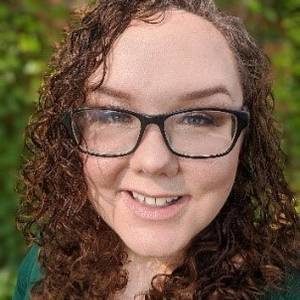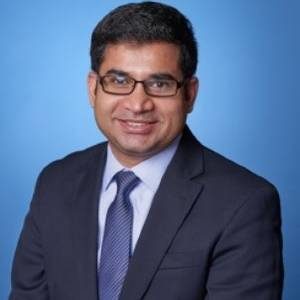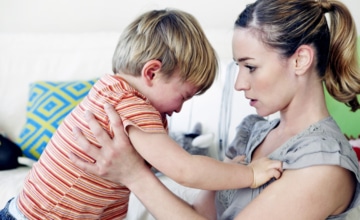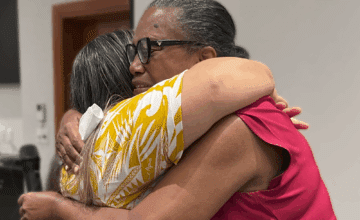Members of the ZERO TO THREE Fellowship Class of 2020-2022
The Fellows are a vibrant, diverse cohort of early and mid-career leaders who bring a broad range of expertise, skills, and perspectives to their commitment to ensure infants and toddlers have a strong start in life.
An Interview with Elizabeth Pihlaja

Elizabeth Pihlaja State MIECHV Director, Prevent Child Abuse North Dakota
An Interview with Elizabeth Pihlaja, Maternal, Infant, and Early Childhood Home Visiting (MIECHV) Director at Prevent Child Abuse North Dakota. Please visit her bio page to learn more about Elizabeth.
1. Briefly describe the burning issue, need, or question that you are addressing through your Fellowship.
The burning issue I’m addressing through the Fellowship is the overall lack of structure and cohesion within North Dakota’s early childhood and maternal-child health systems. When Prevent Child Abuse North Dakota conducted a statewide needs assessment recently, we found that even though service providers are likely to report working well together, many programs don’t share data, intake processes, or anything that would make enrolling easier for parents and families. In addition to building relationships and service networks, our organization is hoping to show state and local decision-makers the importance of investing in home visiting and other two-generation approaches to improving family health and well-being. Finally, because we in home visiting are so fortunate to be able to work with individuals as they progress through the perinatal period, I am working to increase dissemination of trauma-informed prenatal care and increase funding for doula services across the state. North Dakota is hugely rural or frontier, and we struggle with access to care services, even those that cover basic medical needs.
2. What about being a part of the Fellowship Academy are you most enjoying or looking forward to?
I am most excited to work with the phenomenal individuals in my cohort, others in the Fellowship Academy, and the staff at ZERO TO THREE to increase my knowledge and improve my leadership skills. The connections I’ve made already within the Fellowship Academy have encouraged me to be a more adaptive, compassionate leader, mother, friend, and community member. I feel honored to bring what I’m learning back to my colleagues and the families we serve in North Dakota.
3. How have the current events, crises, and societal upheavals impacted your work and/or your perspective of the work ahead of you?
Both the coronavirus pandemic and the violence we’ve seen committed against BIPOC (Black, Indigenous, and people of color) individuals and communities have really laid bare the struggles and trauma so many in our communities are managing on a daily basis, and how ill-prepared our support systems are to provide meaningful, ongoing assistance to those in need. The communities North Dakota MIECHV serves are rich and varied in culture and circumstances, despite how homogenous the population of the state can be. What we’ve seen in our local communities as a reaction to the current crises in North Dakota is continuing resilience and compassion.
Our programs, like many around the world, have undergone a significant transformation as we react and adapt to the changes and safety measures in place due to COVID-19. The home visitors we work with have been serving families through telecommunications and phone calls from their homes (again, we’re really rural, so the Internet connection for some of our families isn’t always the best!), while juggling educating their children at home, caring for their parents or elderly relatives, and managing everything else in the midst of a worldwide pandemic. Obviously, certain things, like screening for intimate partner violence, become much more difficult (and potentially dangerous) to do when we’re operating this way. For the most part, though, services have been maintained or improved. We’re reaching families more often than before, and using community resources and connections to provide concrete support in the form of diapers, hygiene products, cleaning supplies, and groceries. Home visitors are using the time spent not driving from family to family to work on professional development or coordinate programming with other agencies. What has come from this chaotic, unprecedented time for most of us has been a legitimate, visual manifestation of the spirit of home visiting: If before we said it, now we truly are meeting families where they are, addressing their needs, finding them support. It’s been incredible to witness.
And yet, there’s a continual undercurrent of frustration, because direct service professionals all around the country are burning their candles at both ends, amplifying their risk of burnout, because of organizational and policy gaps and structural inequity. I am beyond proud of what has been accomplished this past year by the home visitors working in North Dakota, as well as the work done by the agencies we’ve partnered with. I’m also horrified and angry that they are—that WE are—in positions that risk our physical and mental well-being because the only other option is to walk away and know that people will suffer. We’re asking for self-sacrifice from individuals, whether they be teachers, nurses, grocery store clerks, home visitors, what have you, without much effort to address the brokenness of the system that’s put us in such a dismal state. Therefore, with regard to both COVID-19 and the movement for improved treatment of BIPOC in this country (at the hands of police and others), what the last year has shown me is the need for being a strong advocate for policy and organizational changes that will ensure we are moving toward a more just and equitable society.
Interview with Muhammad Zeshan

Muhammad Zeshan Assistant Professor of Psychiatry, Rutgers Medical School-Newark
An interview with Dr. Muhammad Zeshan, Psychiatrist and Assistant Professor of Psychiatry at Rutgers New Jersey Medical School. Please visit his bio page to learn more about Muhammad.
1. Briefly describe the burning issue, need, or question that you are addressing through your Fellowship.
I am a child psychiatrist in New Jersey, where I teach residents, medical students, and other health care professionals about parenting; trauma; and infant, early childhood, and school mental health. After growing up in a small town in Pakistan and graduating from Nishtar Medical School, I worked with health professionals in my hometown, striving to improve perceptions of mental illness and psychiatry. My interest in parenting and understanding children’s behavior started during high school when I tried to encourage parents in my neighborhood to send their kids to school instead of sending them to work. During fall 2019, I played a major role in piloting the first infant mental health program for midwives in Pakistan. I am also passionate about starting the first transgender mental health program in Pakistan soon.
2. What about being a part of the Fellowship Academy are you most enjoying or looking forward to?
As part of the ZERO TO THREE Family, I am excited to gain expertise in addressing the origin of health care disparities, research, advocacy, and innovative program models. I feel blessed to have a team of diverse fellows and mentors with ambitions and goals consistent with those I have held throughout my career. I look forward to honing my leadership skills through reflective practice/supervision and by learning adaptive leadership frameworks with the goal of becoming a practitioner and educator in infant and early childhood mental health.
3. How have the current events, crises, and societal upheavals impacted your work and/or your perspective of the work ahead of you?
On Friday, January 22, one of my teachers, a renowned and experience psychiatrist in Pakistan committed suicide after shooting his only daughter, who was about to complete her psychiatry residency training. I know, no matter what I do, I cannot bring those two (and many more) precious lives back, but I want to work with leaders in the field to reduce mental health stigma with a hope to (possibly) prevent any other tragic events from happening.




